
This review may contain spoilers
When (low) life gives you porcelain
South Korea, '70s: Eyeing the opportunity for a highly lucrative business deal, small-time criminal O Gwan Seok and his nephew O Hui Dong join a ship expedition intent on recovering a large quantity of Chinese ceramics. The submerged treasure is located inside a wreck sunk off the coast of Mokpo, in South Jeolla Province; however, they need to find a financier and some divers, all without arousing the suspicion of the police and any rival treasure hunters...One could start from the assumption that ‘Low Life’ is not exactly a production for all tastes, given that the accumulation of stylistic elements within it goes somewhat against the grain of the classic (even aesthetic) canons of the multitude of more openly celebrated contemporary dramas.
While it is true that at times it seems almost like a coming-of-age story, and the voiceover in several places reinforces this idea, adding a melodramatic element that is perhaps a little rhetorical but undoubtedly charming, it is nevertheless in the generalised human scenario that the main strengths lie.
At the heart of it all, as always when it comes to money, fortune, wealth and “treasures”, there is obviously greed and avidity, which here go hand in hand with the inevitable feeling of vain hope and social redemption linked to the ephemeral illusion of achieving economic targets.
Certainly valuable and courageous is the choice to represent a microcosm of marginal characters, outcasts and petty criminals, ready to fight each other in order to obtain the coveted ‘treasure’ in the illusion that this lucrative opportunity could change their lives.
Modern buccaneers, one might say.
And mind you, greed here is not limited to certain characters in the drama, but is a generalised fault that overwhelms every single element of the story and, in many places, spares no one, not even in the fleeting emotional bonds that occasionally reveal themselves, perhaps with the illusion of some search for “normality”.
Undoubtedly, it is a picture full of shadows and contradictions, where, at least for a large part of the drama, there is no room for purity and moral integrity, and where every character in the story, either by their own decision or by a cruel twist of fate, ends up choosing the most immediate path, as well as, inevitably, the most dangerous one.
For some, a certain ‘harshness’ in the approach to ‘Low Life’ may be determined by an almost wait-and-see first section, which is extremely articulate and dialogue-heavy, where, cinematographically speaking, the plot development is rather limited (one could say that ‘little is happening’ from an action point of view), but which is essential for introducing the vast and varied cast, with all their peculiarities and contradictions; It is clearly with the start of the treasure hunt that, inevitably, the human dynamics and behavioural tensions that had been suppressed until then will explode...
So double-crossing, suspicion, betrayal and fragile alliances prevail, thanks to the excellent ensemble cast and skilful direction that alternates moments of comedy and black humour with sudden, chilling bursts of violence and sadism, as if to emphasise the ambiguous nature of the characters portrayed in the story.
The characterisation of O Gwan Seok by the excellent Ryu Seung-ryong is truly remarkable. He is an utterly impassive and cynical figure – a mask that seems to come straight out of 1970s genre movies – ready to do anything to achieve his targets; However, in my opinion, the talented Im Soo Jung is unbeatable in the role of the ruthless Yang Jeong Sook, a sort of cold and manipulative “dark lady” who remains unperturbed and determined for most of the story, even if her mask occasionally gives way to moments of unexpected romance.
More classic is Yang Se Jong's portrayal of the young O Hui Dong, who, while accepting the (dirty) rules of the business, bends, especially in the last few episodes, for obvious narrative reasons, to a more stereotyped and “chivalrous” representation of what is necessary.
But it is the ensemble of many well-known and distinctive faces, playing the parts of con artists, ceramist experts, suburban wrestlers and boxers, improvised divers, corrupt police officers and all the motley crew that follows them, that allows ‘Low Life’ to be appreciated as a whole.
Clearly, it is not a perfect drama; the ending is a bit rushed and perhaps too ‘open,’ and, as already mentioned, patience and attention are required at the beginning. There may also be some somewhat forced twists at the end, but you are rewarded with a beautiful adventure that offers an interesting—and nostalgic—portrait of a particular historical period (the '70s), where the first signs of the economic and urban boom (and, of course, speculation) that will come to Seoul are already visible, in contrast to the representation of urban marginality and the aesthetics of the slums, well rendered by a careful reproduction of the locations, costumes and incredible looks of the time.
7 ½
Was this review helpful to you?
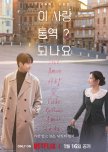
This review may contain spoilers
This Must Be the Place (To Translate Love)
The premise of Can This Love Be Translated? is undoubtedly appealing.A drama that plays on linguistic differences, manages to weave Italian into its narrative structure and moves between fascinating international settings such as Canada, Italy, Japan and Korea, it seems to have all the right ingredients to surprise. However, once the initial impact has worn off, the series reveals its limitations: a rather thin narrative, which develops according to familiar patterns and struggles to stand out and really explore the subject matter, getting lost in smoke and mirrors and convoluted musings. Everything remains superficial, proceeding by accumulation and ending in a rambling and inconclusive manner.
And that's a shame, because the set of themes deserved a much more elaborate narrative; telling the story of love, identity and trauma through the filter of linguistic and cultural translation, especially in a meta-cinematic context – albeit reduced to a horrifying case of “dating show” around the world – would in itself be an excellent starting point:
Love, like language, is an imperfect system: Something is always lost in the transition from one heart to another. It is constantly filtered: By the right words, by messages, by unspoken words that must be rephrased so as not to hurt, so as not to lose the other person. The act of translation is not only linguistic, but emotional. The characters try to make themselves “readable”...
It almost seems like a “tragedy of miscommunication”: even though they speak the same language, Ju Ho Jin and Cha Mu Hui do not understand each other, and translators are not needed when the problem is not language, but meaning.
In this game of “emotional translations”, Can This Love Be Translated? introduces an element that is seemingly unrelated and unconventional, but in reality powerful, at least in principle: Do Ra Mi. A character who -initially- functions as the protagonist's alter ego — her lighter, more ironic version, the one who says what she cannot say — but who ultimately reveals herself to be something more trivially introjected.
Not an autonomous presence, but a functional projection that openly “betrays” the narrative construction; initially, the main character’s trauma is introduced with considerable weight (coma, loss of control, scarred childhood) but then it conforms, it is handled as a narrative mechanism, not as a transformative experience; Do Ra-mi - in principle - would be a “valve” that allows the protagonist to say what she does not dare to say, to act on what she cannot process, until the final “explanation” which, unreasonably, overturns everything, bringing it back to a cliché tiredly exploited in the Dramaverse, especially in the golden age; the internalised maternal voice, the one that teaches how to make oneself acceptable, how to survive emotionally, how to love “well”.
However, even this surprise is handled more as a narrative clarification than as a real emotional earthquake; even after the revelation, the conflict does not really intensify. The internalised mother does not suffocate, dominate or ever threaten to take definitive control. She is a tamed ghost, more explanatory than destabilising. In this way, the childhood trauma – which is evoked with great emphasis – never becomes a force capable of irreversibly redefining the protagonist's present. Everything is accepted and overcome with lightness...
Furthermore, from a cinematic point of view, the choice of an “off-screen” solution (... “I'll meet her in Koreatown” ...) to resolve what is, to all intents and purposes, the narrative core of the drama, is absolutely unacceptable and unforgivable!
Unforgivable, like the representation of Italy, once again reduced to a stereotype, to an imaginary concept rather than the real country; For decades, the narrative of the Belpaese, mainly due to Hollywood, has portrayed Italy as a narrative postcard, an open-air museum with its slow pace, almost invisible work, as if we were a nation of slackers, permanent conviviality, and the absurd rituals of coffee, wine and weddings (the whole part about the protagonist's mother's wedding is an anthology of the ridiculous...); and here there is also a touch of irony, where a drama entitled “Can This Love Be Translated?” ends up not really “translating” Italy, but adapting it to a convenient, already familiar language.
A compendium of the most hackneyed narrative clichés of K-drama, ‘CTLBT’ plays on the tried and tested, offering an accessible, elegant and emotionally safe narrative in which it seems that the choice has been made not to make the characters pay a real emotional price. No truly irreversible choices, no net losses. And without loss, the conclusion struggles to feel necessary in a drama that promises complexity but chooses consolation, leaving two doubts that are at least concrete;
The Netflix model focuses on building media hype to capture the “present”, with a young, beautiful, "Instagrammable" lead actress, a beloved actor who never divides opinion – their excellent performances practically single-handedly “save” the drama – and a “clean”, explained, resolved trauma; all set in a beautiful scenario that leads one to think that the whole thing is the result of a major global marketing operation.
"Can This Love Be Translated" is not a creative failure—the series is saved by its craftsmanship and adequate cast—but rather a deliberate choice of narrative safety in a context of global aesthetic ambition. Perhaps for younger generations – or for those who have no memory of the great dramas of the early 2000s or the more radical titles of the 2010s – this series seems mature because it deals with trauma, identity and social issues. But talking about them is not the same as experiencing them, it is simply finding oneself in a comfort zone that works very well at the moment, generates discussion, etc., but which, perhaps in a few years' time, will be remembered as one of those “nice Netflix dramas”.
6 ½
Was this review helpful to you?

This review may contain spoilers
Ghost In The Machine / I Bury The Living (?)
A jealousy and cuckolded husband “kills” his wife and then, in a macabre farce, carries her around in a hearse to extort money from her former lovers, but not everything is as it seems...1964 was a remarkable year, which saw the release of this curious work by Hajime Sato:
It came after the untimely death of the master Ozu (which, incidentally, also coincided with the retirement from the screen of the extraordinary Setsuko Hara) and the release of interesting works that, curiously, also arrived in Italy:
Among the many, Teshigahara’s beautiful “Woman In The Dunes” (often shown on TV) as well as Suzuki's “The Flower And The Angry Waves” and “Gate Of Flesh” (among my favourites by the master), Masumura's ‘Manji’ (another personal favourite of mine), Shindo Kaneto's ‘Onibaba’, as well as works by Imamura, Honda, Shinoda, Naruse (who has been criminally ignored here for decades!) etc.
‘Sanpo Suru Reikyusha’ by Sato, known internationally as ‘The Glamorous Ghost’, also arrives in Italy but is released with a completely different title (a practice that is, alas, widely abused...) and becomes, for some reason, ‘L’ Amore scotta a Yokohama’, something like ‘Love Burns in Yokohama’…
But why, as many have pointed out, is the action set in Tokyo, what does Yokohama have to do with it?
Who knows!
Although difficult to categorise, but well analysed on various websites that have discussed it over the years, the movie can be considered a black comedy with a grotesque atmosphere, with decidedly surreal touches and some concessions to the macabre that place it, with considerable freedom, in the so-called “Ero guro” genre, with all that this entails…
Decidedly ambiguous in structure and morally cruel in its portrayal of the characters—all of whom are deeply unlikeable—the film truly seems like an allegory, or rather, as is often the case in many works from the Land of the Rising Sun, a parable about the destructive power of money which, when all is said and done, always leads to ruin due to greed and cupidity.
One of the film's greatest strengths is its ability to bring out the worst traits in all of its characters, who are largely devoid of humanity and feelings, driven by the murkiest of impulses, greed for wealth, coldfinancial calculation and abuse of power, taken to the extreme.
If the characterisation of the taxi driver husband (Kō Nishimura, with his extraordinary career) is a mediocre figure, lacking in scruples and moral integrity, ready to adapt and exploit the various twists and turns of the situation, he does not present any positive characteristics, his wife (Masumi Harukawa, also a veteran actress) is no less impressive, a treacherous double-crosser who coldly and lucidly exploits her (arguably questionable) attractiveness not for exclusive physical satisfaction, but purely for the desire to get rich...
And the supporting figures who gradually appear throughout the story are no less (obnoxiously) remarkable.
A grotesque comedy of errors, ‘The Glamorous Ghost’ inevitably ends up being compared to ‘The Comedy of Terrors’, one of the last movies by the great Jacques Tourneur, which coincidentally came out just a year earlier. Tourneur’s movie, it must be said, is certainly not unforgettable, revealing its main strength in its excellent and entertaining cast.
This work by Sato, a director perhaps hastily placed in marginal categories of Japanese cinema, on the contrary, thanks to remarkable black and white photography that increases the contrasts between light and shadow, contributing to amplifying the caricatural effect on the characters, his skewed, distorting shots, and moments of amusing surreal comedy (such as the trips in the hearse and the visit to the morgue with all the corpses awaiting burial) is still appreciated today, thanks to its somewhat macabre, undoubtedly unconventional taste, which may not be to everyone's liking, but certainly a faithful reflection of contemporary society, where everything seems to be driven by money and selfishness and where no redemption seems possible, as can also be inferred from the mockingly ironic ending.
7
Was this review helpful to you?

This review may contain spoilers
You Must Be a Witch...
Very high expectations supported by a result that is not entirely satisfying, for this 'Bitter Sweet Hell', a reasonably good but not outstanding drama, capable of starting off in a very solid and engaging manner, but, as frequently happens in contemporary productions, able to end up losing a little focus in the development of the plot.Beyond the personal taste interpretation of the genre (it is definitely bold to consider BSH a generic 'black comedy'), the drama can comfortably be placed in the context of a family-based thriller, accompanied by the now overused theme of revenge linked to past events, where it is precisely the concept of family, in its multiple aspects, that provides the best key to interpretation and analysis.
Beginning as a phenomenological study of a typical upper-class Korean family (I imagine belonging to that famous 1% often depicted in dramas), 'Bitter Sweet Hell' has the merit of highlighting a harsh analysis of the family institution, highlighting through the failure of marriage, the dramatic and in many ways impossible ability concerning the proper management of interpersonal relationships within the same family unit.
That all this originates through the external factor of the criminal element of the plot, the notorious 'Witch', a sort of puppet master, capable of pulling the strings at his own sadistic will, is certainly one of the most interesting aspects in the development of the story.
The perfect, idyllic, but utterly fake and insincere portrayal of the family unit reveals all its fragility when the death of the patriarch (the always excellent Kwon Hae-hyo, also sacrified for plot exigencies), opens the infamous Pandora's box on the private vices and sins of the various family members...
The carnage game that ensues leads Dr. No, an eminent psychiatrist with a TV programme affiliated with her, to vacillate over the truth behind her own father's death, her father-in-law's responsibility and, at the same time, the mysterious disappearance of her own husband, the famous surgeon Choi Jae Jin.
Faced with the collapse of her certainties, purely selfish doubts about her own career, the resulting social status quo, and the safety/protection of her son (holder of an unmentionable secret), Dr No will even have to confront her mother-in-law, the famous mystery novelist Hong Sa Gang ('Cigarette Queen'), a lover of Agatha Christie and not at all resigned to the risk of a veritable media pillory capable of demolishing the few certainties left in the family...
The confrontation/clash between daughter-in-law and mother-in-law gives us the most enjoyable moments of the drama, thanks to the two prima donnas, perfectly placed in their roles; if Kim Hee Sun may seem a little more conservative with an extremely measured style (but she is just great style, as always, even if in the ending she literally loosens the reins as a mother bear protecting her cub) , in the intense performance of the always remarkable Lee Hye Young, we can really appreciate the ultimate feeling of the story, thanks also to a clever use of explicative flashbacks that add meat to the fire, enriching the plot and leading us to understand the sincere love of the novelist for her family, obviously impossible to explain in words, but comprehensible through the pages of books...
The moments in the whole part concerning the search for the husband/son Choi Jae Jin are very well presented, thanks also to the contribution of Park Kang Sung in the role of Ahn Kil Kang, handyman in the service of the novelist and manager of the 'Soft Hands' restaurant; the characterisation of Kim Nam Hee in the role of a genuine pusillanimous, only partly justified by the personal revelation about his origins, is very well done...
Among the drama's negative aspects, which unfortunately affect the final result quite a bit, I have to place the "Wicked" Lee Se Na, played by an inadequate Yeonwoo, in my opinion (it's always a personal thing, specific!) incapable of portraying a memorable villain, commensurate with the story;
if the explanation on the origin of Se Na's evil is decidedly conventional, even less is made clear as to how she could have circuited and manipulated more or less all the men (there is talk of three husbands, several lovers and even some women) in her revenge intentions;
The head tilt and a mocking glance are not enough to define evil, and the last two episodes, with the usual incongruities in the script and the obvious narrative strains, the sudden 'illuminations' capable of giving the drama a decisive turn, suffer greatly from this serious weakness (or casting error, to my way of thinking), dragging the story towards a rather predictable and even not very courageous ending.
Much, much better is the character of Moon Tae Oh (played by Jung Gun Joo) in the role of the main actors' son's tutor; in his case the roots of the evil are fully justified by deriving family faults and therefore deserving of a justified process of recovery, of 'salvation and redemption', unlike Se Na who, perversely guilty, as a pure 'witch' will meet her just fate....
Interesting is the role of Dr Oh Ji Eun (played by Shin So Yool), hopelessly in love, in search of familial acceptance and a victim in spite of herself of adult scheming and insensitivity...
Lee Se Na, Moon Tae Oh and Dr Oh herself represent in different ways three aspects of a family laceration with devastating consequences, irreparable in Se Na's case.
Vice versa, for the main character family, there can be a chance of redemption and new awareness through mutual solidarity, the ability to listen and understand, the principle of 'acceptance'; exemplary from this point of view is the role of the whole family towards the existential condition of their son Do Hyun (portrayed by a sincere and very human Park Jae-chan), and the appeal, albeit painful but necessary, towards memories (through letters, photographs, footage)
The pursuit of dialogue, sitting around the table, even if only to eat together once in a while, may seem a simple or obvious message, but it can be seen as a curative approach... From this point of view, the conclusion, although overly conciliatory, is quite in line with the development.
To sum up, in my personal opinion, 'Bitter Sweet Hell' is a good drama that lacks a bit of solidity in the second half, but is sustained by an almost completely successful cast and that has the virtue of not going on for too long; I would even have appreciated a couple more episodes to highlight the role of the novelist a bit more concretely, especially in her tormented relationship with her husband, but that's OK;
In some sections, I found several points of contact with the contemporaneous 'Hide' (which is however more reliable on the complex) with which, curiously enough, it shares the location of the holiday residence, the scene of adultery in one case and of crimes in the other...
Personal side note: Hong Sa Gang's car is absolutely awesome!
7/10
Was this review helpful to you?

This review may contain spoilers
Magnificent Obsession
"Ms. Perfect" is a scintillating melodrama with a classic flavour, able to offer an intricately multifaceted story that, starting from a fairly conventional family drama structure, with the end of a married couple's love affair at its centre and the relative painful disintegration of the domestic unit, gradually evolves into a fascinating and enthralling mystery thriller with an incredible story of mad love at its centre, absolutely indebted to the Hollywood classics of the golden age...Thanks to the chance offered by a singular and apparently perfect woman, a strange rental contract (extremely favourable! ) and a forced and curious cohabitation, accompanied by a heterogeneous group of family members, friends, and real or presumed servants, the focus of the story will develop in the new home of our heroine who, faced with ambiguously hostile characters and situations, gripped by doubts, feelings of guilt (not only her husband's betrayal, but also the uncomfortable presence/figure of her ex-first love) and even erroneous evaluations, will end up feeling threatened in the actual space of her new living location...
Trying to play with cinematic genres, in order to tempt the curious, “Ms. Perfect” seems to be the evolution of the so-called 'gothic movie', in its female variant, starring a woman, in spite of herself, grappling with a marriage affair with disturbing contours. Only in this case, the danger does not come directly from the male counterpart, but from the ambiguous and perturbing co-star, a true modern adaptation of the figure of the 'dark lady', a typical characterisation of the noir genre.
Everything is prodigiously served by a writing script that is never ordinary, capable of re-launching the plot each time with courageous choices, absolutely unsettling in many cases, at the service of a cast of an extraordinary level, able to alternate between comedy and tragedy, charade and drama, in a constant involvement that accompanies us throughout the wonderful twenty episodes, which show no sign of weakness or tiredness...
Intrigues and mysteries, real or presumed ghosts that re-emerge from a past with many interrogative aspects. As in the best tradition of Korean dramas, an underlying ambiguity appears that is able to characterise all the actors of "Ms. Perfect"... No one seems to be immune from guilt, albeit on different levels, and this ambiguity allows us to escape from easy "good/bad" classifications, thanks to a great performance by the whole cast...
The main attraction of this drama rotates around the astonishing performance of the charismatic Cho Yeo Jung, an actress of incredible beauty, capable, thanks to her immense and ambiguous charm, of portraying the role of a foolish woman in love, disposed to do anything to obtain the object of her desire... Absolutely ambiguous and sinister right from the moment she appears on the scene, Eun Hee becomes the true focal point of the narrative, catalysing the attention on her character who will progressively reveal her hidden object, concretely managing to raise the attention also on the omnipresent and obsessive relationship that connects stars and their fans (stalker! ?)
Sacrificial victims of his love madness are the "rival" Jae Bok, played by the also very beautiful Ko So Young (almost a twin sister of Kim Ha Neul!) and her husband, Jung Hee, brilliantly rendered by the excellent Yoon Sang Hyun, in one of the best roles of his remarkable career... In my opinion, it is precisely through the character of Jung Hee, in his progressive personality transformation, in the clash/confrontation with his wife Jae Bok, that some of the most interesting narrative cues emerge, capable of instilling doubts above all of a moral nature, on ambition, guilt and careerism at any cost...
It was said of the overall excellent cast where also the very good Sung Joon/Bong Goo makes his character evolve in a decidedly mature manner, thanks also to the exemplary part played by Im Se Mi/Na Mi who, mainly in the first half of the drama, shows a prominent role in the unravelling of the intrigued plot... I also really appreciated Jae Bok's two funny female friends, Na Hye Ran (played by Kim Jung Nan) and, above all, Kim Won Jae (Jung Soo Young) who could even have been used in more depth, given the psychoanalytic aspect emerging in the development of the storyline.... But, again, bravo to all, adults and children alike
There are many truly fascinating passages, often concentrated inside the vast mansion; the mysterious doors forbidden to all, also a typical noir cliché, almost an update of Hitchcock's "Rebecca" or so many of its epigones; Jae Bok's continuous wandering in the house, often intimidated by the presence of "hostile" figures; the effective use of flash-backs, which, thanks also to the classic repetitions of past traumas, reveal the many dark points of the principal characters... The confrontation between Na Mi and Eun Hee, Eun Hee finding herself alone in the huge house...And then one of my favourite movie tropes: The forced closure in the asylum, as well as the literally " flaming" finale that seems taken from a Roger Corman movie of the Edgar Allan Poe series....
Managing to satisfy so many of my cinematic obsessions, with an intriguing, engaging, well-written, perfectly acted tale, without moments of boredom or the usual lapses into more or less acceptable nonsense, 'Ms. Perfect' is a 'perfectly' successful example of excellent narrative script that meets absolutely exemplary mise-en-scene, creating a very entertaining story
9/10
Was this review helpful to you?

This review may contain spoilers
Love can come at any time in our life
I watched this movie to detox myself a bit from a disappointing drama I ‘ve been watching in the past few days, also recommended by another MDL user, what can I say, really a happy breath of fresh air...It's a really pleasantly well-made romantic comedy that, without saying anything new, joyfully succeeds in engaging the well-prepared viewer for its two-hour duration (which is not particularly heavy at all, however).
It is in the choice of the main players that the movie's success is most evident; telling a love story with two mature characters, wonderfully mature I would say, but at the same time still young in their hearts and at the end of the day simply desperate to have someone at their side to love, like all of us...
The story is of disarming simplicity and the plot mechanics are those well established in the classic Korean rom-com: the main character, with his hilarious facial expressions, lost in his foibles and fixations, with an absolutely absurd and decidedly unhealthy job, the usual circle of colleagues/acquaintances more deranged than him, as well as the bothering element of his brother; on the other side, our beautiful Kim Hee Sun, a messed-up single mother with a teenage daughter, obviously problematic...
Rather than the usual clash-meeting between two completely antithetical entities, the most interesting element is surely the lengthy courteousness on her part, which allows the staging of several rather amusing scenes related to the total clumsiness of our male subject
But it is precisely in these phases of rapprochement of the two lonely souls, in this gradual process towards a state of happiness, that I found myself most satisfied, in that desire to attempt to experience the same joyfully adolescent emotions that can be found in so many dramas or movies, more or less good; that attempt at normality that leads us to think: "Why can't we experience the same joys too!"
Of course, there are the obvious lucky coincidences and even several innocent ingenuities that push the story towards the most obvious ending, thanks also to a supporting cast that is functional to its role, but in the end you are immediately inclined to cheer for the two heroes and therefore we welcome that bit of magical coincidence that leads to the happy end, just to have a Romantic Heart and believe/hope that love can come at any time in our life
The rating is a perhaps generous 7.5/10, but in cases like this it is OK to be kind...
Was this review helpful to you?
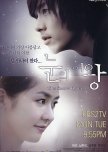
This review may contain spoilers
A marvelous story of indissoluble love
A poignant drama, permeated with a deeply felt melancholy that accompanies us from beginning to end, The Snow Queen continues to be, in my opinion, a marvelous story of indissoluble love, capable of transcending any barrier, pushing (in all senses) towards extreme borders (not only figuratively speaking) thanks to the sincere romanticism of a practically perfect script and an excellent direction (the author is the same director of 'Winter Sonata', to be clear)As always, love, chance and destiny are preponderant elements that drive the story forward, but compared to similar cases, one does not turn one's nose up at any inconsistency, illogic or magnanimous demands for complete suspension of disbelief, since everything manages to be coordinated in a balanced and 'realistic' structure that also guarantees a sentimental identification with the beautiful characters of the drama...
The composite screenplay manages to overcome a linear storyline with a concentric structure, full of randomness and coincidences, alternating points of view, even narrative variations on the same theme, as well as subplots and geometrical plotlines that enrich the construction of the story, where even a few symbols or simple objects such as a pager, a music tape and a couple of photographs have the strength to release sincere emotion without trespassing on the pathetic.
It is achieved without falling into the baroque or exaggerated mannerism (typical of many contemporary dramas) that sometimes makes us raise an eyebrow or roll our eyes, thanks to skillful and never ordinary dialogue of obvious literary derivation, capable of arousing equal passion for two apparently antithetical subjects such as mathematics and boxing, and this is also possible thanks to a perfect cast in an absolute state of grace.
Hyun Bin renders his character's torment and remorse very well, with a truly calibrated, touching and involving performance, a prisoner of his own secret and bearer of an inner suffering bordering on self-destruction, almost Catholic in nature, even though the religious references (much more marked in other dramas of the same period) remain confined to a desperate prayer/invocation towards the end of the drama. Yu-ri -very gorgeous! -is absolutely perfect, capable of operating a sort of progressive transformation and dramatic growth that is functional to the narrative development of the story; the bumptious and spoilt little girl of the beginning of the story, ends up evolving and becoming a mature (young) woman, consciously resigned, in spite of herself, to her own fate.
The remaining cast is perfectly integrated in their roles without any pedantic backstory that in this case would frankly be considered pleonastic, with the exception of the excellent portrayal of Tae Woong's mother, who is absolutely decisive in further accentuating the protagonist's torments, and Bo Ra's father, capable of confirming once again that founding principle of dramas whereby the faults of parents end up falling on their children (in fact, he is responsible for the tragic fate of his eldest son)
Much has been written, and rightly so, about the extraordinary venues of the story, and the skillful use of the locations really deserves a separate mention, starting with the extraordinary landscapes in the opening, later reproposed in the last episode, to continue with the gymnasium, a sort of perfect microcosm populated by a group of marginalized people with a warm heart, which restores to us all the sense of sadness that lingers in the (icy!?) heart of the protagonist; Bo Ra's house, almost a gilded prison, up to the basketball court that returns also in the heartbreaking finale...
As is common in other productions, the role of nature is central, both in the snowy sequences and in those where it is the sea that increasingly, almost overwhelmingly, emphasizes the lyricism of the drama; for example, the sequences at the grave of the friend/brother, which personally have always made me think of my favorite Murakami Haruki book, 'Norwegian Wood' ...
Touching and melancholic without ever being intrusive, the soundtrack is the further strength of this extraordinary drama, a kind of contemporary fairy tale that is a truly perfect transposition of Andersen's sadly melancholic universe...
I decided to re-watch this gem a distance of a few years, after, what an irony for a drama-fan such myself! Fate has stripped me, in a short space of time, of some of the most beloved people who have accompanied my life... When one loses, affections, loves, friendships, beyond the pain and inner wounding, one questions oneself and seeks answers as to why things happen...
Just like the characters in the drama, we are constantly asking ourselves many questions, and the reflection on the differences between mathematics, which is always able to provide answers, and life, which acts by chance and very often does not provide answers, is perhaps the best possible metaphor or the perfect theorem to sum up not only this drama, but the lives of many people...
10/10
Was this review helpful to you?
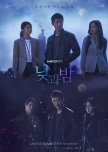
This review may contain spoilers
For lovers of genre
I watched "Awaken" based on VIKI's introduction, expecting a crime thriller maybe in the style of "Flower of Evil" or "The Devil", two series I really adoredAt the beginning, I followed with good expectations, thanks to a rather impressive incipit and with intriguing subsequent suggestions, even though the typifications of the main characters were not particularly original (the usual typecasting of the variegated team at work always reminds me of certain Japanese robot cartoons of childhood with the leader, the beauty, the clumsy and the nerd, those things, in short...).
However, as the episodes went on, I began to have more than one doubt about the direction of the series with a growing sense of annoyance, a red alert for a scenario completely different from the initial perspective; getting to the point, the expansion to Sci-Fi and things of this nature I had not really planned for and at that point the interest really dropped exponentially...
I mean, it's not that the story is particularly boring, it's reasonably elaborate and repeatedly tries to revive the attention with impactful cliffhangers, but the problem is that 'Awaken' really does come at a very late stage and smashes open doors from so many previous ones...
With everything we ‘ve had, from 'The X-Files' to 'Stranger Things', via 'Dark Angel' and their many epigones with 'special kids', it's a moment's notice to find yourself in such trite situations that you're able to understand much of the unfolding almost immediately.
The usual secret labs, the usual child-guinea-pigs, the usual mad doctors, between Dr. Frankenstein and the many crazed demiurges in a delirium of omnipotence, perhaps even parents of the aforementioned lab subjects
In overall terms, for fans of the same genre, it is certainly something that can intrigue and involve, but at the same time, for the aficionado with a little knowledge of the material, it is impossible not to notice the incredible accumulation of references, clichés and tired stereotypes that make the nose twitch, as well as the usual holes in the logic that often screw up the elaboration and development of many situations...
And it's a pity, because in my opinion the moral dimension of the story should have been highlighted more, thanks to the excellent performance of the main character Namkoong Min, capable of casting for several episodes the classic shadow of doubt on his true nature; it's also a shame for the little in-depth analysis between our super-child and the really disturbing mad scientist-mother, limited to the last episodes; the same goes for the police-daughter/father-scientist relationship, with an always excellent Kim Chang Wan in a role that would have deserved a better deepening, but then the police daughter (who we are told is also of great merit) really knows practically nothing about her father's work, for all those years! ?
The lead character in the guise of a wanted possible multiple homicide who calmly drives around the city, in defiance of roadblocks, checkpoints, camera recordings or phone interceptions (as seen in so many dramas or movies) is inexcusable, as is the Terminator-turn with the relative moving of trucks with his hands (but why?), with sudden and opportune super-powers...
A comic anthology is the three days wasted by Jamie (by the way, she, Lee Chung Ah, really beautiful -nda) and the nosey reporter waiting for the rain to cease so they can go by boat to the island-laboratory, and then the two 'super-boys' who come and go in a flash, at night, and how do they do it, maybe flying!?
It gets to the end rather tiredly due to the too many twists and turns of the drama with a pretty predictable and practically inevitable ending that leaves that inevitable sense of déjà-vu and general discontent quite marked...
Personally my rating is 7/10, fairly generous, more for the first part of the story and for some of the acting performances:
Of course Namkoong Min who certainly doesn't need me to tell him that (he's a class actor!) and something in the minor characterisations but at the end of the whole affair there are no particular desires left for second viewings...
Was this review helpful to you?

This review may contain spoilers
Sail to me Sail to me, let me enfold you
The accidental and magical encounter between two totally opposite worlds: on the one hand, Kim Joo Won (Hyun Bin, immense), the arrogant young heir to a wealthy business empire, accustomed to viewing reality through the lens of privilege, control and efficiency, deeply scarred by a trauma suffered during his youth. On the other, Gil Ra Im (Ha Ji Won, wonderful and iconic), a stuntwoman, an invisible worker in the entertainment industry, accustomed to putting her body at the service of cinematic illusion without receiving the recognition she deserves.Around them is a colorful microcosm that sums up Korean showbiz, made up of eccentric idols such as singer Oska (Yoon Sang Hyun, extraordinary and hilarious), stars in crisis – including personal crises – looking for a creative comeback, his ex, Yoon Seul (Kim Sa Rang, beautiful and perfect), a young heiress, music businesswoman and aspiring filmmaker, and the whole underworld of show business made up of artists seeking their fortune and an academy of stuntmen who risk their precarious lives every day in the name of cinema.
Between past traumas, crossing stories, despotic mothers, role reversals (and body swaps!), a magical contemporary fairy tale set in dreamlike scenarios, accompanied by a fabulous soundtrack, where fate and destiny inevitably intertwine, marking the lives of all the protagonists forever.
An extraordinary “social” melodrama capable of using fantasy as a magnifying glass for “reality”, Secret Garden stylishly transcends the limits of romantic fantasy, decoding the genre and cinematic language through a complex narrative structure, literary references (Andersen and Carroll, above all) and witty dialogue, deep and poetic, and unconventional choices that constantly revitalize a multi-layered story, suggesting that nothing is truly random and drawing the viewer into a whirlwind that ties the characters' destinies together, far beyond what appears on the surface.
Beyond the (beautiful) love story, Secret Garden immediately raises questions about themes such as the power of money, the concrete violence of social differences, and a moral dimension that is never pacifying or consoling, but rather raw, direct and unpleasant. But the drama also speaks to us of dedication to work, friendship and sacrifice, physical labour, and everyday life marked by the precariousness of an independence built more out of necessity than choice. It is not only a narrative device, but also a moral and social one, capable of undermining identities, roles and hierarchies, forcing the characters to look at the world – and themselves – from a radically different perspective.
A collision, an unlikely, jarring encounter/clash between two worlds that are inevitably destined not to understand each other: that of Kim Joo Won, made up of power, high status and a normative language where everything has a price, every relationship a balance of power (think of the dates planned for arranged marriages); the incredible urban complex where Joo Won and Oska live, with its modern, clean lines, might be reminiscent of Philip Johnson's Glass House or Mies van der Rohe's Farnsworth House because of their minimalist elegance, but, just like the houses of these architects, they are places that reflect a kind of detachment from the outside world. Places where Gil Ra Im “literally” gets lost.
And then there is Gil Ra Im's world, which does not deal with abstract principles but is concrete, linked to the body, work, effort, reactive and not programmatic; being a stuntwoman means replacing others, taking risks without receiving recognition, remaining invisible behind the spectacular performances of others (like the entire part involving the star Park Chae Rin). Joo Won can afford to theorise, Ra Im can’t.
One of the best aspects of the drama is the behind-the-scenes into the world of show business. It is not just a celebration of the seventh art; it is a tribute to the “craft”, to the artistic and practical work carried out by the “invisible” people. 'Hidden' work, often without romance, capable of showing its harsh side; of Gil Ra Im who falls, gets hurt and resists, unlike the “protected” body of Kim Joo Won.
Secret Garden uses dialogue not only to generate empathy, but also to create friction; Kim Joo Won often makes controversial statements openly and without filters, without hypocrisy; He does so with disarming lucidity; he is a privileged individual who explicitly states the unwritten rules of the system, using money as a criterion of value and love as a luxury, going so far as to define poverty, at least initially, as an individual fault or failure. The point is that he is often right from the system's point of view, and this is precisely what makes him disturbing, at least initially. Each of his “pills of quick philosophy” is actually an act of social positioning: he is not just talking to Gil Ra Im, but from a class position that he takes for granted as natural, inevitable, almost biological. It is one of the foundations of melodrama, as a space for class conflict. Secret Garden works on a classic principle: character is revealed through language, a truly sharp tool of unmasking that inevitably leads the viewer to take a stand.
It is in this context that Secret Garden introduces the element of fantasy, not as an escape from reality, but as a tool for questioning. The famous trick of the “exchange” is the key point. The fantastical ploy does not destroy the moral realism of the series. On the contrary, it allows ethical continuity to be re-established. Only by inhabiting the other's body does the male protagonist understand fatigue, pain and humiliation. The fantastical becomes a tool of human truth. Melodrama replaces “social conflict” with an “embodied” experience, in which understanding the other passes through the body that “works” ... The fantastical does not “deny” realism, it “translates” it onto the moral plane. In this unstable balance, “Secret Garden” reveals the profound workings of contemporary melodrama: not erasing reality, but “taming” it. Not a critique of the world, but the illusion that changing one's point of view – or body – is enough to make it right. This is the focus. The heart of the drama.
In this twist, even the “fairytale” element of Andersen's “The Little Mermaid” becomes a meta-narrative key; a metaphor for sacrifice, pain, unrequited love, but also for transformation and personal growth. The fairy tale is not just a love story, but a reflection on sacrifice and the idea of belonging to two worlds that never completely meet. The Little Mermaid gives everything for love, but does not get what she wants.
Although the drama does not simply follow the same trajectory as the fable, the dramatic “accident” marks a crucial moment of transformation; the concept of sacrifice is brought into play at more complex levels. The metaphor of invisible sacrifice, which runs through Ra Im's life as a stuntwoman, but also Kim Joo Won as a desperate lover, becomes even more tangible, forcing the characters to confront a situation that ends up being beyond their (im)possibility of control.
It is not just a plot twist, but a further, powerful narrative engine that drives the protagonists of the story towards a deeper understanding of themselves and others. At this point, the lines between fairy-tale imagination and the reality of their existence become blurred, and the series reaches a new emotional and symbolic dimension. A story that also expresses a genealogical and moral dimension; it is not just a story of love and class relations, but also of inheritance, of what is passed on – or denied – from one generation to the next. Mother and father are not secondary figures: they are active, almost allegorical principles.
Joo Won's mother is one of the most radical characters in the drama precisely because she does not change. And this, in a melodrama, is very rare. Park Joon Geum's extraordinary performance, intentionally over the top – almost Disney-esque – is a deliberate choice: she is an iconic villain, not psychological, she does not need to be explained, she embodies a principle. She is the ruling class that does not apologise. In her opposition to Gil Ra Im, she does not lie, she does not hide, she does not pretend to be polite, she openly says what often remains implicit: love is not enough when it challenges wealth, name and the continuity of privilege. Hers is a motherhood that is not emotional but dynastic. To morally “disinherit” Joo Won means punishing him not for who he loves, but for breaking the chain of social obedience. Power may lose a sentimental battle, but it never symbolically abdicates.
If Joo Won's mother is the power that preserves, Gil Ra Im's father is the sacrifice that transforms. He is not just any father; he is a saviour, a public servant, a worker ready to sacrifice himself to protect others: What he does for Kim Joo Won ends up being Gil Ra Im's “condemnation”. He creates a moral debt that runs throughout the series. The trauma of the lift, of enclosed spaces, is not simply a phobia, it is the “physical” sign of one life saved at the cost of another. A spirit-guide, an “invisible” director who “arranges” the exchange of bodies/souls; It is not an abstract deity, a random magic; it is a father's desire to redress an original injustice (and we know at what price); but destiny, as mentioned above, is often already mapped out and cannot always be rewritten... it is not always fair, but it is consistent. Here too, there are two extraordinarily antithetical figures: Joo Won's mother inherits, preserves, excludes, representing the world as it is. Gil Ra Im's father gives, sacrifices himself, tries to restore balance, even morally; he represents the world as it should be.
Oska and Yoon Seul, two extraordinarily intertwined characters; he, a Hallyu star, a “mature” idol, not only in terms of age, but also in terms of structure: rich, famous, but deeply insecure; he must fight to remain relevant, but at the same time, he experiences the entertainment industry as a cage. He is on his seventh album, i.e. at a stage where talent is no longer a promise but a “responsibility”. He does not have to prove he can sing: He has to prove he still has something to say. His creative block does not stem from a lack of inspiration, but from an excess of awareness. He knows how the market works, he knows what is expected of him, and that is precisely why every song risk sounding like a replica, or worse, plagiarism. The characterization of Han Tae Son, played by the young and charismatic Lee Jong Suk, is emblematically perfect. He is a rising talent, still “pure”, uncorrupted by the entertainment industry, capable of “reading” Oska's life and career, literally opening his eyes and mind.
Yoon Seul is “beautiful and rich”, but she never exploits these qualities for narrative gain. She does not ask for protection or a trivial social status, nor does she use love as a strategy. Her aspiration to find the right path in the entertainment world is not a whim: it is a choice of positioning within the cultural industry. She wants to stay behind the appearance, the image, not inside it; it is a rejection of the role assigned to her by her social position; she was Oska's “muse”, but she overturns the clichés of Korean dramas; a truly modern, independent figure, who nevertheless does not disdain clever tricks to win back her true love.
The perfect balance between the various narrative aspects, combined with the superb cast, is truly the key to the success of the series. The mixture of genuine emotion and pure entertainment, the inclusion of surreal situations linked to the “exchange”, enrich the drama with comedy and emotional tension, creating a unique multidimensional atmosphere. The two lead actors not only carry the love story forward, but with the swap, their bodies become the ideal playground for exploring emotions and relationships that go beyond appearances. The comical interactions become a vehicle for showing their vulnerabilities, but also a way to complicate the dynamics of their relationship with each other and with the other players.
The interplay between the characters, both in the beautiful interlude in Jeju (where literally anything happens) and during the stay at the golf course residence, allows for a series of unexpected situations to develop, exploring intimacy, jealousy and mutual understanding in new ways. But it also leads to more painful discoveries and moments of rupture in interpersonal relationships, such as in the rapport between Ra Im and her boss Jong Soo (Lee Phillip, excellent). The exchange becomes a tool for contemporary introspection, but also for cruelly selfish “emotional manipulation”.
A melodrama that does not sugarcoat reality, but makes it bearable only after showing it for what it is... The conclusion of ‘Secret Garden’, on the surface of the narrative, may appear reassuring: it is an ending that follows the rules of melodrama, offering the viewer a form of emotional pacification. But to stop there would be to misunderstand the deeper meaning of the story.
The real ending of ‘Secret Garden’ is not projected forward, but rather looks back. It is contained in a silent and devastating flashback, which retroactively reconstructs the fate of the central characters: the young Kim Joo Won, wounded and still in shock, goes to the funeral chamber of the firefighter who saved his life; there, in a gesture of absolute innocence, he lies down next to the young Gil Ra Im, devastated by the pain of losing her father.
In that image, stripped of rhetoric and devoid of words, ‘Secret Garden’ declares its fundamental premise: The love between Joo Won and Ra Im does not arise from a contingent choice, but from a shared original wound. Before becoming lovers, they were two young people united by death; before desire, there was sacrifice; before feelings, there was a moral debt inscribed in their bodies and lives. In the drama, destiny is not a romantic design, but a line drawn by pain, which the characters can only cross, not erase.
This is why fantasy, body swapping, trials and separations never seem arbitrary: they are stages in a journey already inscribed in the past. The final happiness does not erase the trauma, but integrates it; it does not resolve it, but makes it bearable. Secret Garden does not promise that love will save everything, but suggests that it can at least give meaning to what has been lost.
10/10
Was this review helpful to you?
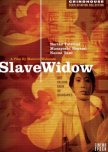
This review may contain spoilers
You Don’t Own Me (Anymore)
Devastated by the sudden death of her husband, the wealthy Mitsuko (Noriko Tatsumu, sensual icon of the Pinku Eiga genre) discovers that her late partner has left her with a mountain of debts. Among her creditors is the powerful businessman Kito, who literally loses his head over the widow and, after raping her, reduces Mitsuko to his sexual object as a form of “compensation” ... Kito has a son, Kazuhiko, who, despite his impending marriage to the daughter of a wealthy industrialist, also falls madly in love with Mitsuko.Among the more than 200 movies shot by director Mamoru Watanabe, a specialist in the erotic Pinku eiga genre, “Slave Widow” is one of the most popular, thanks to wider distribution that took the film beyond Japan's borders and opened it up to Western audiences.
It must be said that, although the film has not aged particularly well, it still manages to be appreciated after all these years, thanks in part to its relatively short running time of 74 minutes. In some ways, it can be considered a representative summary of this particular film genre.
The devastating social descent into the hell of the worst human aberrations spares nothing for the derelict main character, who sees her world (of middle class extraction) shatter when her status, conveyed by the work of her husband, collides with harsh reality.
Rape, sexual coercion, physical and psychological violence, with money used as a tool of psychological domination; As if she were an exaggerated version of a Puccini heroine, the unfortunate Mitsuko finds herself reduced to the role of sex slave, dominated by the will of old Kito, who, from his position as creditor to the woman's husband, has no qualms about subjugating her for his own personal pleasure in what is a compendium of perversions that would delight any fan of the most explicit sadomasochism...
The woman's suffering passivity is accentuated by the painful condition of her maid, which implicitly also induces a sapphic subtext, though one that is never really revealed. Hers is the most humanised figure among the film's characters, thanks to her naivety and purity in the face of explicit (as well as suffered) depravity. The young girl is a silent (and suffering) witness to the growing sexual desire of Mitsuko, a sex slave and object of desire (even for Kito's son), who is unconsciously unable to escape her own carnal pulsions.
In various reviews of “Slave Widow”, the film's style is rightly described as hieratic, in that, especially in the more explicit scenes, the use of static shots, slow camera movements and overly emphatic acting seem to create an almost solemn atmosphere, foreshadowing the impending tragedy, which is repeatedly “announced” by explicit omens.
However, there is too much mechanicality in the erotic moments, which are not particularly captivating, partly due to the limitations imposed by Japanese censorship at the time, with few nude scenes, which are well limited by framing and appropriate veils. On the other hand, the use of music and ambient sounds (birds chirping, etc.) is interesting, and the great sensuality of the beautiful heroine, who is perfect in her portrayal of a tragic figure, a submissive victim of her own desire, still leaves its mark.
7
Was this review helpful to you?

This review may contain spoilers
What you can't see can't hurt you...
Komori Chiaki (Katahira Nagisa), a young freshman at Asuka Girls' High School and a promising tennis player, is accidentally hit in the eye by her coach, Hiroshi Imaoka (Yamamoto Shingo ), during practice. The diagnosis is grim: Chiaki risks blindness in her injured eye, which would mean the end of her sporting career.However, Hiroshi learns through indirect channels that there is a surgeon capable of performing miraculous operations who works without a license, in exchange for generous payment.
His name is Black Jack! (a funny and amused Shishido Jo).
The surgery is successful and Chiaki seems to be able to return to her life before the accident; However, the girl begins to experience what appear to be visual hallucinations: On certain occasions, she claims to see an elegant-looking man (Minegishi Toru, excellent) standing in front of her, but the problem is that no one else seems to be able to see him.
Immediately following his delirious and acclaimed “House,” the great and prolific director Nobuhiko Obayashi embarks on this curious “The Visitor In The Eye,” a comic book-inspired work financed by the HoriPro agency. This company saw in the genius of the director from Onomichi (a prefecture near Hiroshima, central to the themes of his filmography), in his anarchic, completely unconventional talent, the possibility of riding the long wave and attempting to expand his audience of enthusiasts beyond the limits of arthouse cinema.
The movie is a very freely adapted version of a story from the epic manga series “Black Jack,” created by the God of Comics, Osamu Tezuka. Black Jack is a formidable surgeon who operates without a license. He appears cynical and disinterested, obsessed with money (hence his exorbitant fees), but in reality he has a heart that is much more sensitive to the weak and oppressed.
It is impossible to summarize it briefly, partly because in Tezuka's universe, much like that of his American counterpart Walt Disney (there are many comparisons between the two masters), his characters—both in comics and movies-often interact in the most diverse ways, even if only in brief appearances out of context.
A bizarre hybrid of genres, “The Visitor In The Eye” travels on several parallel tracks, with elements of crime, mystery, and even fantasy, with surreal and supernatural touches that evolve into a truly intense and passionate melodrama, almost like old-fashioned Hollywood. The dreamlike dimension, given the film's theme, reigns supreme, in a flood of uninterrupted references.
Free from any limiting formalism, Obayashi, like an abstract painter, throws all his cinematic passions into the mix, creating the ideal atmosphere for the development of the story: The picture is undoubtedly a feast for the eyes, with particular attention to detail, colorful sets, lighting, and a truly immersive use of music, especially thanks to the repeated main theme. There is no shortage of symbolism, such as the recurring reference to water, above all.
While Tezuka's original manga was necessarily condensed (it is, in fact, a rather short episode), ending up depicting what is, quite prosaically, an unhappy (and tragic) representation of the experience of first love, this cinematic variant develops with a broader scope, happily exploiting the theme of visual perception, and therefore also its relative ambiguity, filtered through the eye (the gaze) of Chiaki “inherited” from her “donor.”
It is a sort of “contamination of the gaze” that leads the audience to greater involvement, guided (or manipulated!?), but also to an attempt to confuse them in that blurred boundary between reality and appearance, or dream, perhaps even hallucinatory (in certain passages it seems like being on a psychedelic trip), as, for example, in the almost contemporary (it is from the year before) “Obsession” by Brian De Palma, a faithful disciple of the master of suspense Alfred Hitchcock (speaking of “dreamlike suggestions”...)
And Obayashi, with his lighting tricks, painted scenery, and theatrical effects so dear to him and typical of cartoons (the house on the hill is truly exceptional), first immerses everything in a burning red (the color of passion!) and then gradually slips into a foggy grayness that leads us to the climax of the story.
The past and present end up intertwining, between flashbacks and fantasies, accentuating the evocative power of the images and the imaginative strength of the movie... It may all be artificial, fictitious, or exaggerated, as some critics have often pointed out, but this aesthetic fascination achieves its purpose of engaging and entertaining viewers who are willing to accept Obayashi's rules of engagement.
However, the film suffers from a less than perfect casting choice. Despite the very pleasant presence of Shishido Jo, it must be said that Black Jack's characterization is not as predominant as one would expect. His role in the story is not that of the main character, but he still acts as the driving force behind the plot, first through the miraculous operation that rekindles Chiaki's hopes, and then with the clever investigative insights that unravel the complex tangle, incidentally using a trick that was also employed—curiously—by Italian master of horror Dario Argento in one of his early films.
Much more intriguing, however, is the character of Shiro Kazama (Minegishi Toru, with a look that says it all.…), who dominates the second half of the picture. He comes across almost as a dandy, a charming decadent artist who seems to have stepped out of certain Gothic melodramas of the 1940s, and his crescendo drives the action very well, while Chiaki's characterization appears quite conventional and, frankly, ends up being overly passive in her development, which is nonetheless central and would require greater psychological (as well as expressive) depth.
As befits the subject matter, Osamu Tezuka's microcosm is also well represented, with some amusing appearances (which are a bit like cameos) by some of his famous personages; attentive viewers are left with the pleasure of spotting the references (and the actors involved).
“The Visitor In The Eye” should certainly not be considered one of Obayashi's most representative films, but the overly negative reviews are frankly unfair. Upon its release, it appears to have been a box office flop, and perhaps with a shorter running length and greater attention to the supporting characters, who are a little too stereotypical, the movie would have benefite, but the picture remains a truly remarkable experiment, capable of recreating and conveying that comic book aesthetic typical of its time, still vintage and linked more to artisan talent than to the chillness of contemporary special effects (let us remember that Tezuka passed away prematurely in 1989), which are decidedly colder and more detached.
7 ½
Was this review helpful to you?

This review may contain spoilers
Heads gonna roll...
The eccentric archaeologist Hieda Reijiro, a novice demon hunter, and Masao, the son of Professor Yabe, find themselves teamed up in the hunt for the terrible creature Hiruko, an evil spirit capable of possessing its victims. The demon has appeared in the rural school attended by Masao himself. The young student, who has seen his classmate Reiko Tsukishima—with whom he is shyly in love—inside the school, comes to the same conclusion as the archaeologist: A mysterious portal may exist in those places which, if opened, would spread the gates of Hell, releasing other demonic creatures.Conceived in the summer of 1990, “Hiruko The Goblin”, the second movie by the extraordinary director Shin'ya Tsukamoto, ranks among the first two chapters of the “Tetsuo” saga in the filmography of the Tokyo-born author, appearing almost as a sort of “foreign body” within his cinematic vision.
Produced with a substantial budget by Shochiku, the project attracted the interest of Tsukamoto, who was seeking funding for the sequel to his sensational debut film, “Tetsuo: The Iron Man”. Although the script is based on a non-original story (the source is a series of tales from a manga by Daijirō Moroboshi), "Hiruko" proves to be a work of extraordinary imagination and genius, highlighting the great eclecticism of the thirty-year-old Tsukamoto, who is perfectly at ease even in a more “commercial” production.
Clearly indebted to a certain horror classicism of the 1960s—with a little imagination, one might think of the various Kaidan movies or episodes of Yokai Monsters— “Hiruko The Goblin,” somewhat in keeping with its comic book origins, moves in a sort of amused equilibrium, perhaps a little off-balance, with that ability, at times masterful, to jump between the most disparate genres, from pure horror to exaggerated gore, to comedy that is at times surreal, alternating frenetic rhythms with almost meditative pauses.
The narrative structure finds its natural place in many classic Japanese clichés, starting with the school location, set in a bucolic countryside setting during the summer holidays (almost in contrast to the “urban/industrial” style found in “Tetsuo”), continuing with the particular representation of the (terrifying) demons of Japanese tradition and folklore. However, these elements are mixed and reworked by Tsukamoto in a referential key, also through elements typical of American horror, which was so successful in those decades.
It is impossible not to notice the various references to the movies of Sam Raimi or John Carpenter (but in the finale there is also room for James Cameron's contemporary “Abyss”); While the swirling tracking shots that introduce the demon immediately bring to mind “Evil Dead”, archaeologist Hieda's vintage equipment (who rides a bicycle like Doc from “Back to the Future”) seems to come straight from “Ghostbusters”. Where technology fails, a good insecticide, perhaps even with a broom, achieves the desired effect!
The mystery features are spot on, with Masao's classmates “disappearing” one by one, the school location, which is decidedly creepy at night, and the characterizations. The combination of Masao and Hieda is a dynamic duo with strong elements of a buddy movie and a mentor-student relationship, while the school building's caretaker is reminiscent of many characters from American made movies. However, it is Reiko, with her chanting, almost siren-like refrain, who is truly unforgettable.
More grotesque than hyperkinetic, Tsukamoto's style in “Hiruko” is perhaps a little regimented, less subversive, and adapted to the classic conventions of the genre. undoubtedly less experimental, but still not without some of his characteristic visual solutions, such as stop motion, accelerations, and, to a lesser extent, body mutations, the Tokyo director nevertheless displays a truly remarkable formal elegance, especially in moments of apparent calm, at times even poetic, capable of creating the right atmosphere that inevitably leads to the most typical horror.
For many, Hiruko is considered a minor feature or a transitional work in Tsukamoto's filmography. In several analyses, some complain about a certain decline in the ending, perhaps a little too naive compared to the development of the story, but it should be remembered that this is still a commissioned work, over which Tsukamoto could not have full control and that, probably, the film company forced certain solutions;
Moreover, the substantial budget had been exhausted, forcing the director to abandon certain stylistic and narrative choices.
Personally, I've always loved it, ever since I first saw it; it was often shown on TV in late-night programs, slotting it in between the first two “Tetsuo” movies; I believe its strength lies precisely in this uneven, comic-book style, ironic and caricatural, in its perhaps naive and even slightly retro style (before the overdose of special effects, CGI, etc.), that artisanal taste, now almost completely lost, perhaps anachronistic for many (not for me, for sure) but undoubtedly fascinating and visionary, which has contributed to making it that cult object that still resists today.
8 ½
Was this review helpful to you?

This review may contain spoilers
"La tristesse durera toujours"
Toshio Ōki (Sō Yamamura, in an absolutely well-placed part), an established middle-aged writer, husband and father, travels to Kyoto in the days leading up to New Year’s Eve; In his thoughts always returns Otoko (Kaoru Yachigusa, perfectly at ease in the role), his former lover from decades earlier, who at the time, when the girl was barely 16, had also given him a daughter, who died soon after her birth...From this experience, Ōki wrote a deeply autobiographical book ("The Sixteen-Year-Old Girl", the title quoted in the novel) that became a bestseller.
After being abandoned by Ōki (who has returned to the family fold), Otoko is now an accomplished painter and lives in the company of the young and perturbing Keiko (Mariko Kaga, stunning), her pupil and lover; Keiko, as beautiful as well as enigmatic, is obsessed with “bringing justice” to her partner, engaging in a destructive game of massacre that will not spare even Ōki's son Taichiro…
Beauty and Sadness ("Utsukushisa to Kanashimi to", 1964) is one of the most significant novels by Yasunari Kawabata, the great Japanese master who won the Nobel Prize for Literature in 1968; His compositional style, poetic lyricism and the themes expressed in his works are ineluctably interwoven with Japanese culture and tradition, but also with that profound and complex sense of universal melancholy that afflicts -inesorably- the human soul, especially in the face of the passing of time and, therefore, of life itself ...
The material available in the novel offers so many insights that it would be perfect for a film adaptation.
Due to the immediate public success of the book, the Shōchiku film company cleverly decided to produce an adaptation for the big screen, relying on the skilful flair of Masahiro Shinoda, one of the most representative names at the disposal of the company founded in Tokyo.
Shinoda (born in 1931, died in early 2025) had joined Shōchiku in 1953, at a very young age and, like so many of his colleagues, had gone through a several-year apprenticeship as assistant director for many prestigious colleagues (Ozu too, among others) and, finally, in 1960 he made his debut as a film director, immediately distinguishing himself thanks to a non-conformist style, detached from the cultural movements that engaged his more “politicised” colleagues (Oshima etc.).
Eager to change the basic language, as well as the content and themes, Shinoda had started a productive collaboration with both Shuji Terayama, great author, poet, playwright, director and a thousand other things, and also with avant-garde composer Toru Takemitsu, deconstructing cinematic materials, especially in Yakuza and Crime Movies such as “My Face Red in the Sunset” (which seems to anticipate certain Seijun Suzuki-esque mockery and experimentation) and, most of all in the beautiful "Pale Flower”.
To use the words of Chris D. in his immense essay “Outlaw Masters Of Japanese Film”, Shinoda revealed an almost pictorial style in the composition of the images, managing to miraculously merge music with imagery, lights and camera work, resulting in a rigorous style and realisation…
With these assumptions, in the skilful hands of the Gifu-born director, Kawabata's novel comes to life, converting the pages of the book into images and perfectly reproducing the sensual and aestheticising world of the work of the same name, without, however, giving in to perhaps easier sensationalism (as in Masumura's “Manji” of the same time, nudity is extremely limited here).
We are in the presence of a multifaceted and complex love story involving all the tormented characters portrayed and where all the most significant themes of the novel find expression; The past that suddenly resurfaces, suffering and regret (because “Love is a wound that never heals...”), sense of guilt, but also desire, obsession and, of course, love itself (also in its predominant homosexual aspect).
All these elements are highlighted by Shinoda with an extremely geometric style, elegant in its attention to detail and in the search for atmosphere; A style capable of alternating very close-ups with long shots, as well as crab shots and the use of refined long takes; Those in Otoko's house are beautiful, with the two women/lovers confronting each other.
Refined visual aesthetics and a great display of technique even in static shots, almost with a cinematographic cut à la Ozu; Shinoda also fills the scenes with mirrors, somewhat in the manner of Orson Welles, almost as if to reiterate, in metaphorical form, the complexity of reality, truth and the shattering of the identities represented, particularly in the multifaceted nature of Keiko.
Thanks also to the perfect use of colours and beautiful locations, the clever temporal fragmentation - excellent flashbacks alternating past and present - the contribution of the music - and introspective silences - and the use of elliptical editing, the essence of the original text, as well as much of the dialogue, is well represented, especially in the last segment, which diligently avoids risky didactic cascades, restoring all the pathos and relative emotional tension of the book's dramatic crescendo.
The choice of the cast, perfectly assembled, is a very satisfying decision; The idea of making Keiko the fulcrum of the story is interesting, thanks also to the remarkable attractiveness of Mariko Kaga (already the protagonist in ‘Pale Flower’ who, moreover, with those eyes, would make anyone vacillate!). Especially in the sequences with Otoko, Keiko is remarkable in amplifying her obsessions and her mad love for her teacher, at times disturbing in her iron will to achieve her purposes;
Almost as a counterpart, Otoko interiorises her own suffering and her painful wounds, trying to find a reason for being in the realisation of the painting (“The Child's Ascension” is the highlighted title in the novel) which, in a cathartic way, should help her overcome the events she has experienced over the years, as well as the “beauty and sadness” of her unfortunate love for Ōki.
Ōki, played by Sō Yamamura, (the same age as his character in the novel at the time) especially in the first section, is well centred and conveys the anxieties and existential condition required by the role, tormented by remorse.
Perfectly functional Yamamoto Kei, in the role of Taichiro and Watanabe Misako, in that of Fumiko, Ōki's wife, torn by grief and resentment…
As a curiosity, the film was distributed in Italy with a decidedly distorted title, ‘L'Amaro Giardino di Lesbo’, something like ‘The Bitter Garden of Lesbo’, too explicit and moreover misleading in its contents; An opera perhaps not to everyone's taste, also due to a certain coldness or contemplative “slowness”, ‘With Beauty and Sorrow’ proves perfectly capable of honouring its magnificent source (the novel is absolutely essential) in an intense and refined manner, subtly cutting as well as painfully beautiful... and sad.
8 ½
Was this review helpful to you?

This review may contain spoilers
Two's couple, three's a crowd…Four is a cross
* Sonoko, the bored wife of the lawyer Kakiuchi, attends a private art school and during her lessons, while portraying the Bodhisattva divinity Kannon, she meets the young Mitsuko, being fascinated by her... Soon an unstoppable passion breaks out between the two women, which sees the more mature Sonoko obsessed by the manipulative Mitsuko and which will see the two women find themselves entangled in a torrid sexual labyrinth that will end up involving even the ambiguous Watanuki, Mitsuko's promised husband, and Sonoko's own husband…Among other things, 1964 was the year that saw the remarkable encounter between the outstanding narrative style of the master Junichiro Tanizaki and the peculiar and unconventional cinematic vision of the great Yasuzo Masumura, a director capable of translating one of the Tokyo writer's masterpieces, the famous “Manji”, into images, rendered correctly in Italian as “La Croce Buddista” (The Buddhist Cross) and also released here as a movie with the adapted (but not taken out of context) title “La Casa degli Amori Particolari” (something like “The House of Unusual Loves”) and later also reworked by female director Liliana Cavani in a version transposed to World War II and titled “Interno Berlinese”...
Masumura inherited the project from Kon Ichikawa, who was in turn filming his work on the Tokyo Olympics. He enlisted the help of Kaneto Shindo for the screenplay and, more than faithfully respecting Tanizaki's novel (set in the late 1920s), he dried and compressed the pages of the book, dropping everything into a contemporary setting (recognisable by the clothes of the protagonists) with an almost theatrical feel, or a kammerspiel if you prefer…
An incredibly oppressive and claustrophobic setting (there are practically no outdoor sequences) with a skilful use of the flashback structure (just like in the novel), supported also by a beautiful chromatic rendering that emphasises the colours, but, above all, relying on his directorial dogmas, often criticised by artists such as Oshima, who had devoted more than one critical essay on Masumura's style to the method of the master of Kofu.
Masumura had formed in Italy, at the "Centro Sperimentale di Cinematografia", a Roma" (CSC) in the two-year period from 1952 to 1954, and this experience had allowed him to associate with other colleagues of the calibre of Federico Fellini, Roberto Rossellini and Michelangelo Antonioni, to name but a few; Returned to his homeland, he immediately distinguished himself by his unconventional approach and a style that went against the trends of classical filmmakers, but also of his younger colleagues (such as Oshima himself) with an anti-naturalistic style that made no concessions to spectacle and the desires of the audience
"Manji', in the hands of another director, could have lent itself to an easy reading as a canonical melodrama with a tragic background, but Masumura's extremely direct -and concise- treatment combines formal radicalism (non-conformist vision) and adequate psychological tension, as well as emphasising the peculiarities of his directorial style...
Despite the sensitive subject matter, which would lend itself to even more daring representations, the direction avoids any possible voyeuristic complacency (the few nudities are extremely chaste, it must be specified...), focusing mainly on the characterisation of the protagonists, particularly Sonoko (Kishida Kyoko, perfect), the more mature of the two women, who, inexorably overwhelmed by the attraction and desire for Mitsuko (a beautiful and very excellent Wakao Ayako, a true muse of the director) progressively falls into a spiral of madness, without shame or any concern for -relative- consequences, including social ones.
Sonoko, a “bourgeois” woman with a rather conventional life, dissatisfied with the greyness of a loveless marriage, ends up suffering -and accepting- the overwhelming sensuality of the younger and more elusive Mitsuko who, with her ambiguities, duplicity and progressive lies, perfectly embodies that character figure who is characteristically anaffective, unscrupulous and cynically anti-naturalistic at the basis of Masumura's cinematography.
In this somewhat hyper-realist short circuit, Mitsuko ends up almost assuming the role of a sacerdotess, or goddess no less, thanks in part to her total identification with the portrait of the goddess Kannon, to whom she had lent herself more or less indirectly as a model, and who will find her reason for being in the concluding self-destructive spiral...
The two male figures, Sonoko's husband (Funakoshi Eiji) and Mitsuko's ex-lover (Kawazu Yusuke), emblematically miserable and devoid of any qualities, will progressively end up “sucked into the self-destructive vortex of a passion that, beyond its erotic dimension, will reveal itself above all as a struggle for the possession and annihilation of the other”.
Masumura's cinema is extreme, disorienting and in some ways disturbing (but he would go even further in subsequent years), capable of bending the rules of melodrama to his sharp vision that plumbs the depths and highlights false bourgeois conventions, even repressive ones on the subject of sexuality, highlighting a radical critique of the hypocrisies of Japanese society.
It is not known whether Tanizaki was able to see (and appreciate or not) this reduction of his beautiful novel (the writer died the following year, in 1965), but it must be said, beyond the personal tastes of each spectator, that Masumura offers a decidedly respectful and even faithful representation of the most important passages, allowing us for once not to turn up our noses and find a pleasant exception to the age-old dilemma of the quality of films based on novels, more or less representable in cinematographic format...
8 ½
* I would like to indirectly thank the author Beniamino Biondi for his courageous work ‘ Giganti e Giocattoli - Il Cinema di Yasuzo Masumura’, for the many news and interesting insights; And, as always, for the beautiful catalogue ‘Racconti Crudeli di Gioventù’ (Nuovo Cinema Giapponese degli anni 60), Marco Muller and Dario Tomasi; Their essay is an inexhaustible and irreplaceable source when writing reviews…
Was this review helpful to you?
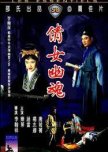
This review may contain spoilers
When You get a rent-free house, the catch is around the corner...
Just arrived in a small town, the tax collector (or scholar, depending on the translation A/N) Ning Caichen (Chao Lei), unable to find accommodation for the night, chooses to take refuge in a temple outside the village limits, despite the warnings of many people, who are convinced that the place is haunted by evil presences.The villagers' ominous superstitions prove correct: The temple Jinhua appears to be cursed…
And from the manor house near the temple, a delightful young girl (Betty Loh Ti) sings, accompanying herself on the koto…
An essential classic born from the fertile creative forge of the Shaw Brothers studios and the talent of director Li Han-hsiang (also author of the subsequent and magnificent ‘The Love Eterne’), which is not always fully recognised, “The Enchanting Shadow” is an imaginative work that transcends genres and styles, thanks to its fluid and modern staging and truly exquisite use of photography, with magnificent visual effects and colour schemes.
A true pivot point in fantasy productions (a definition that, much like black, wears well with everything), the movie, which draws inspiration from Pu Songling's collection ‘Strange Tales from a Chinese Studio,’ it was released in the summer of 1960 and also competed at the Cannes Film Festival that same year, and it is certainly not pure fantasy to think that the work sparked some ideas in the minds of directors, producers, etc. in the Western film industry as well.
Considered by Riccardo Esposito, in his seminal book “Fant'Asia”, a sort of Oriental “proto-horror”, as well as an undeniable source of inspiration for Tsui Hark and his “A Chinese Ghost Story” (which is in fact a remake of it), ‘The Enchanting Shadow’ (but the original title is “Qian Nü You Hun”, which we will not translate so as not to reveal too much!) after so many years, it continues to prove itself well structured and highly enjoyable to watch, thanks to its appreciable, decidedly classic narrative structure (widely replicated and exploited over the years), which manages to condense the tale into less than 90 minutes, while also allowing for interesting genre mixtures that help to keep the viewer's attention alive throughout.
A striking mix of melodramatic and supernatural elements, enhanced by a fundamental musical complement and interesting horror digressions, the film captivates with its charm and evocative power, which, despite a context that is certainly not rich and perhaps even a little naive and hand-crafted, undoubtedly achieves its objectives of interest and entertainment, thanks not only to the remarkable work of the authors, but also to the clever use of ellipses and off-screen sequences and, of course, the excellent contribution of a perfectly cast ensemble.
Chao Lei, in the role of the initially timorous Ning Caichen, is the archetypal character of this genre of movies; A curious intellectual, attracted by the mystery surrounding the temple—which is truly creepy at night—guided by honesty and moral rectitude against fear and popular superstitions, he meets Yan Chixia (Yang Chih-ching), a sort of swordsman/hermit (and also a singer) who immediately makes it clear that he knows a lot about the terrifying voices surrounding the ruined building.
Ning thus inevitably and progressively becomes the “perfect prey” of Nie Xiaoqian, a mysterious young woman played by the captivating and irresistible Betty Loh Ti, who, thanks to her excellent performance, ends up being the real focus of the movie.
From her first appearance, the beautiful actress exudes a magical aura, placing her character in a decidedly “fantastic” dimension, so much so that we immediately wonder whether Nie Xiaoqian is a real woman or perhaps “something else”.
Each of her “appearances” (it is appropriate to write it this way) deeply affects – and progressively more and more – poor Ning, who desperately tries to resist the young girl’s enchanting exploits from the seductive temptations of the flesh to those that are decidedly more materialistic (his goodness, one might say!), especially as he discovers, as the story advances, unthinkable truths about the aforementioned girl, truths that will inevitably shake his most firmly held convictions.
The work of the director of photography is truly remarkable, playing with the colours, contrasts and shadows of the night in the temple, in a happy chromatic combination with the beautiful clothes of the protagonist (each time in different colours variations), particularly the blue tones at the moment of the (not too surprising) “confession”.
This is a detail that should not be underestimated and that allows me to digress briefly:
In the years that followed, American director Roger Corman, thanks to the contribution of his extraordinary director of photography Floyd Crosby, would often replicate this visual trickery, especially in his series of movies based on the stories of Edgar Allan Poe and, also in Italy, Mario Bava - who, curiously, released his extraordinary classic ‘La Maschera del Demonio’ [“Black Sunday”] in the same year, 1960 -, will amaze with his subsequent horror productions, exploiting visually ‘colourful’ techniques not unlike those appreciated here in ‘The Enchanting Shadow’;
As if to recreate a metaphorical bridge capable of highlighting the wonderful ability of the seventh art to transcend boundaries and find happy stylistic points of encounter...
Undoubtedly a pivotal work in the development of Hong Kong genre cinema, ‘The Enchanting Shadow’, as a classic, continues to be enjoyed thanks to its old-fashioned charm, or ‘vintage’ appeal, if you will, which many may find outdated or obsolete, but which, to me personally, makes it formally exemplary, thanks to the right atmosphere and the skilful hybridisation of different genres (a feature that will later become recurrent), capable of being appreciated by the most willing and discerning viewers...
8 ½
Was this review helpful to you?























